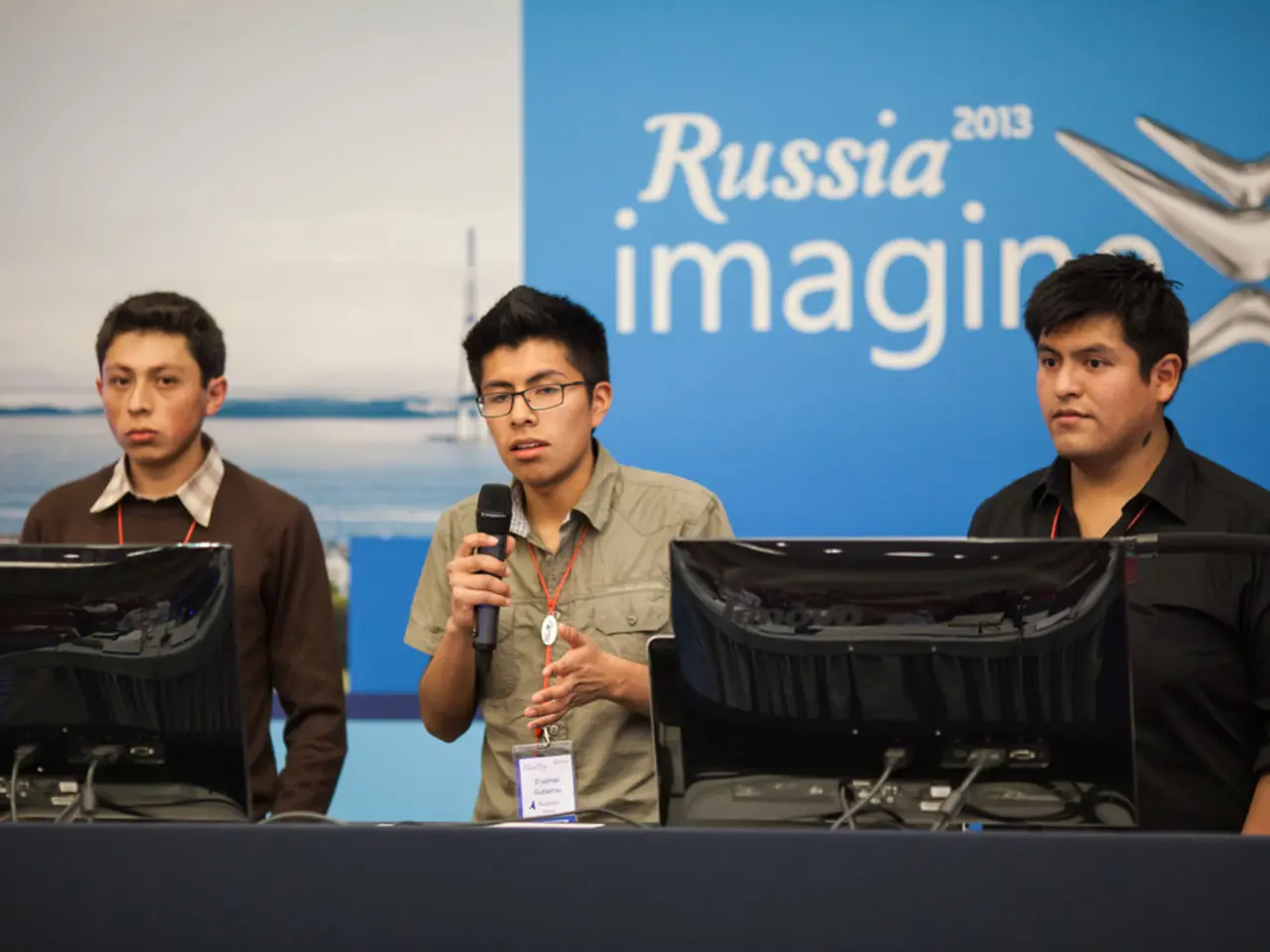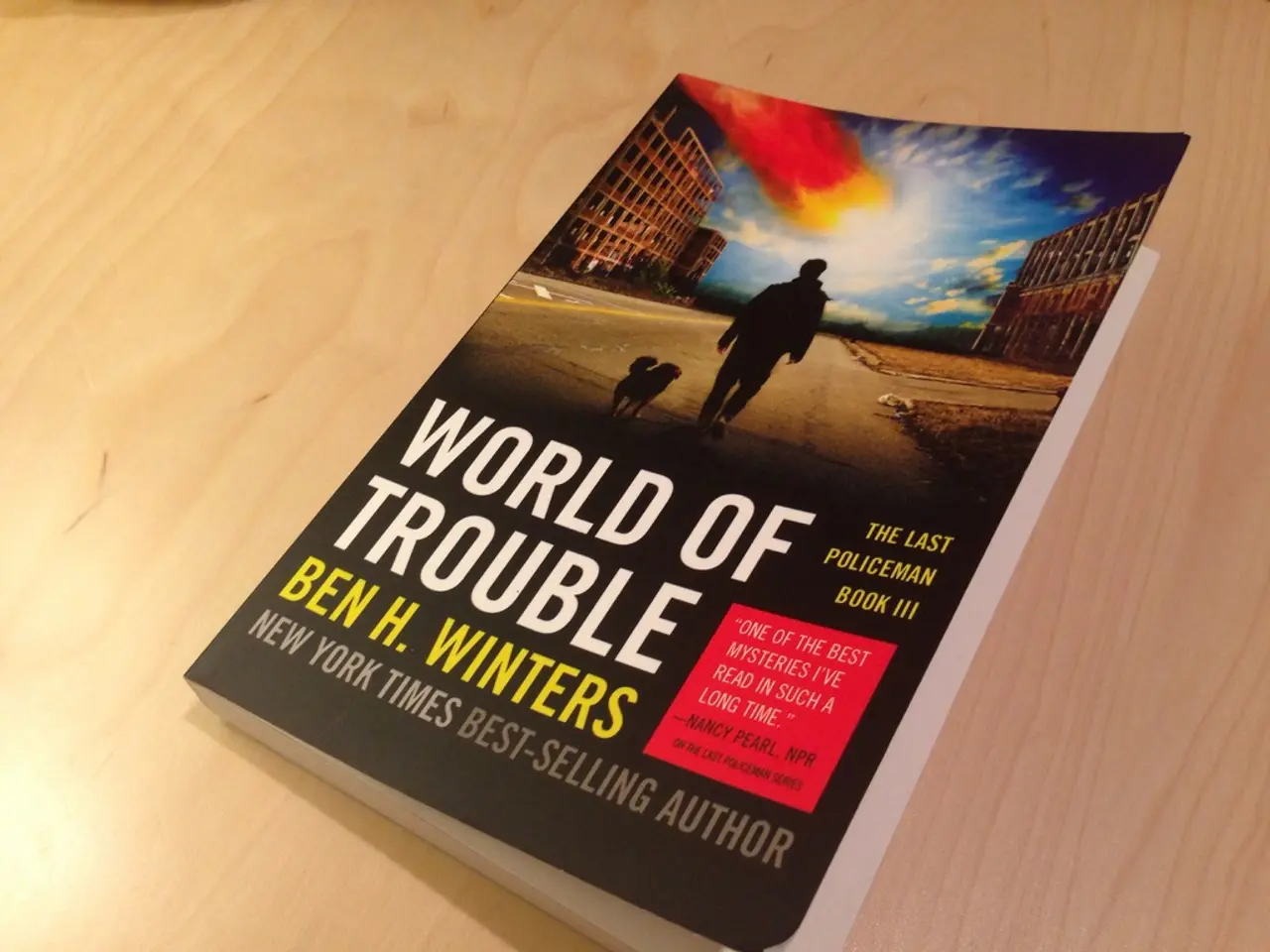Flexibility in Dialogues: Putin Open to Discussions, Even with Zelensky
Open to Dialogue: Putin Willing to Engage, Even with Zelensky - Open Dialogue Proposed by Putin, Involving Zelensky in Discussions
In a surprising turn of events, Russian President Vladimir Putin has shown openness towards dialogues with German Chancellor, Friedrich Merz (CDU), and even with Ukrainian President, Volodymyr Zelensky - under certain conditions.
Russia-Germany Tensions Rise Over Ukraine Conflict
If Merz seeks a chat, Russia is on board with this communication, Putin stated to the DPA news agency in St. Petersburg. "We're always open to it," he asserted.
Putin candidly addressed the ongoing war against Ukraine, stating that Russia doesn't perceive Germany as an impartial mediator due to its alignment with Ukraine, supplying tanks, and hence, involvement in the fighting.
This marks Putin's first public response to Merz since his election in May. However, attempts from Merz to persuade Putin to cease fire in the Russian war against Ukraine have been fruitless so far.
Tensions between Russia and Germany have escalated to an all-time high. Moscow has criticized Merz's confrontational approach towards Russia and objects to the arms deliveries to Ukraine. Additionally, there have been several incidences, including hacker attacks on the Bundestag, the murder of a Georgian by a Russian intelligence agent in 2019, an arson attack on a cargo plane, and recent espionage acts against the Bundeswehr, for which Russia is held responsible. However, Russia maintains that it has not taken any steps against Germany's interests[1].
Potential Meeting with Zelensky, But Conditions Apply
Putin remains open to a meeting with Ukrainian President, Volodymyr Zelensky. "I'm ready to meet with anyone - including Zelensky," Putin said. However, the condition is that Russia would be the one signing the peace agreement[1].
Putin once again cast doubt on Zelensky's legitimacy, questioning the validity of his term, which expired last year. The Ukrainian administration claims that no elections can be held due to martial law, and Zelensky still holds all the power.
Moreover, Putin expressed the need for continued direct negotiations between Moscow and Kiev. The talks that took place twice this year in Istanbul under the mediation of the Turkish government should continue after June 22. These discussions have yielded humanitarian results, such as the exchange of prisoners and fallen soldiers[2].
A Stage Set for Negotiations: Putin and Western Media
Putin engaged in a Q&A session with Western journalists during the first day of the St. Petersburg International Economic Forum (SPIEF). Kremlin spokesman, Dmitri Peskov, explained that Putin wanted this conversation to present Russia's stance unfiltered to the Western world.
Russia utilizes the forum to showcase itself globally and defy the intended international isolation by the West. Furthermore, the St. Petersburg International Economic Forum (SPIEF) serves as a platform to circumvent sanctions imposed on Russia, which Putin insists are unlawful. One of the scheduled events includes a Russia-USA business dialogue following the normalization of relations under U.S. President, Donald Trump[3].
Anticipating around 20,000 participants from 140 countries by Saturday, the forum welcomes numerous entrepreneurs and speakers from Western nations. As usual, President Putin will deliver an economic policy speech on Friday and field questions on a panel[3].
Despite strained economic ties, the forum continues to attract significant interest, despite Russia's high inflation and a high-interest rate that makes investments expensive.
- Vladimir Putin
- Volodymyr Zelensky
- Russia
- Friedrich Merz
- Ukraine
- Moscow
- Germany
- Kremlin
- Kyiv
- News agencies
- CDU
- St. Petersburg
- Conflict
Insights:
- Putin's conditions for talks with Zelensky include waiting for a conclusive stage in negotiations to ensure an end to the conflict[1].
- Russia's demands for peace involve Ukraine making significant concessions, potentially leading to a loss of sovereignty and control over its own military and political affairs[3].
- Russia perceives Germany as an antagonist due to its ongoing support for Ukraine, military aid, and alignment with Western efforts opposing Russia's invasion[2][3].
- The Commission, with its proposal for a regulation on the establishment of a European Agency for the Management of Operational Cooperation at the External Borders of the Member States, signifies a proactive approach in policy-and-legislation and politics, intended to address general-news issues such as war-and-conflicts, like the ongoing Russian-Ukraine crisis.
- In the midst of international investigations and allegations regarding espionage acts against the Bundeswehr, cyber attacks on the Bundestag, and the murder of a Georgian by a Russian intelligence agent, the European Union's stance on Russia's involvement in such politics might impact its policy-and-legislation and relations with both Ukraine and Germany.







